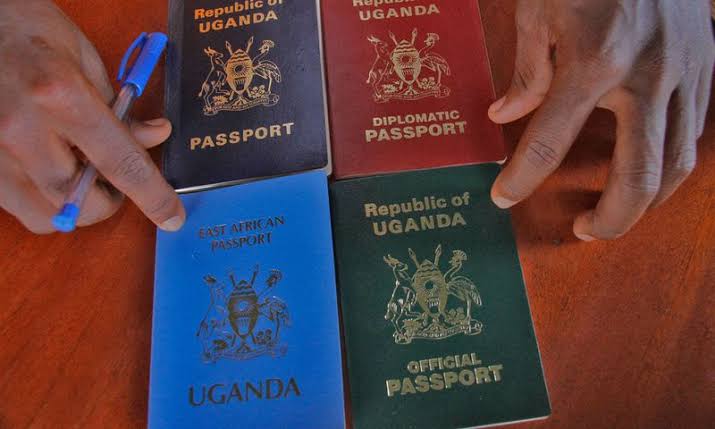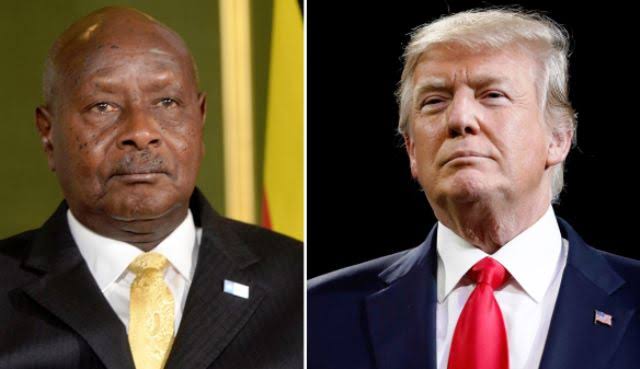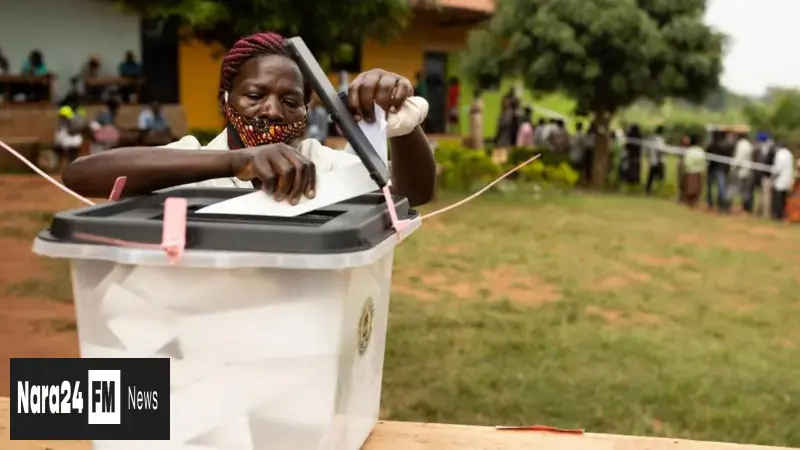In This Article
- Introduction
- Visa Restrictions Overview
- Trade Relations at Risk
- Diplomatic Implications
- Criticism and Concerns
- Next Steps for Uganda
Key Takeaways
- Uganda is among 36 countries that may face new U.S. visa restrictions due to a proposed expansion of travel bans by the Trump administration.
- The U.S. State Department has outlined new requirements for affected nations, including improved security for identity documents and cooperation on deportations.
- In 2024, bilateral trade between Uganda and the U.S. exceeded $238 million, highlighting the economic ties that could be jeopardized by potential visa restrictions.
- Critics argue that the proposed visa bans disproportionately target African and non-Western nations, raising concerns about xenophobia in U.S. immigration policy.
- Uganda has until early August to comply with the new requirements or face enforcement of travel bans, which could impact students, business travelers, and exporters.
KAMPALA — In a significant development, Uganda has been identified as one of 36 countries that may face new travel restrictions from the United States under a proposed expansion of visa bans by the Trump administration. This decision could represent a challenge for Uganda's diplomatic and economic links with Washington, particularly as trade between the two nations continues to flourish.

The draft policy, which has been revealed in a U.S. State Department memo reviewed by The Washington Post, instructs American diplomats to engage with the affected nations, including Uganda. Countries have a two-month window to comply with new requirements or risk facing visa restrictions. These requirements include enhanced security for identity documents, a decrease in visa overstay rates, improved deportation cooperation, and measures to combat governmental fraud.
According to the memo, which bears the signature of U.S. Secretary of State Marco Rubio, some nations were cited for permitting citizenship-by-investment programs or engaging in “anti-American activity.” If enacted, this expansion of the travel ban would follow an earlier proclamation from the Trump administration that already imposed restrictions on 20 countries, primarily in Africa, the Middle East, and Latin America.
USMNT Shines in Gold Cup Opener with Dominant Victory Over Trinidad and Tobago
The U.S. Men's National Team opened their 2025 Gold Cup camp...
Read moreTrade Relations at Risk
The impending visa restrictions arrive at a time when Uganda's trade ties with the United States have been on an upward trajectory. In 2024, U.S. exports to Uganda amounted to around $106 million, while imports were approximately $132 million, culminating in a bilateral trade volume exceeding $238 million. Data from the Office of Economic Complexity (OEC) indicates a remarkable increase in U.S. exports to Uganda, which soared from $6.06 million in April 2024 to $23.1 million in April 2025, marking a 282% rise. Additionally, imports from Uganda to the U.S. grew by 22% from January 2024 to January 2025.
Diplomatic Implications
Are Tariffs Truly Fueling the US Economy? A Closer Look at Trump's Investment Claims
President Donald Trump has asserted that his administration...
Read moreUganda’s identification on this list has raised alarms within diplomatic circles, especially considering the country’s established partnership with the U.S. in areas such as security, peacekeeping, counterterrorism, and regional stability. Uganda has notably contributed to the African Union peacekeeping mission in Somalia (ATMIS). While the U.S. State Department has refrained from commenting on the memo, the White House has suggested that these measures are part of a broader initiative to fortify U.S. immigration controls.
Critics, particularly from the Democratic Party, have accused the Trump administration of harboring xenophobic tendencies, claiming that the expanding list of targeted countries disproportionately affects African and other non-Western nations. As of now, Ugandan officials have yet to release a formal statement regarding this issue. Nevertheless, analysts caution that if the visa restrictions come to fruition, they could significantly impact Ugandan students, business travelers, exporters, and families, many of whom rely on seamless access to U.S. visas for education, commerce, and personal relationships.
Uganda and the other nations facing potential restrictions have until early August to present action plans to the U.S. State Department. Following this period, decisions regarding the enforcement of travel bans are anticipated. As both parties navigate these developments, many Ugandan businesses, particularly in agriculture, horticulture, and tourism sectors, remain vigilant of the potential ramifications on trade, investment, and international collaboration.








Comments (0)
Leave a Comment
Be the first to comment on this article!